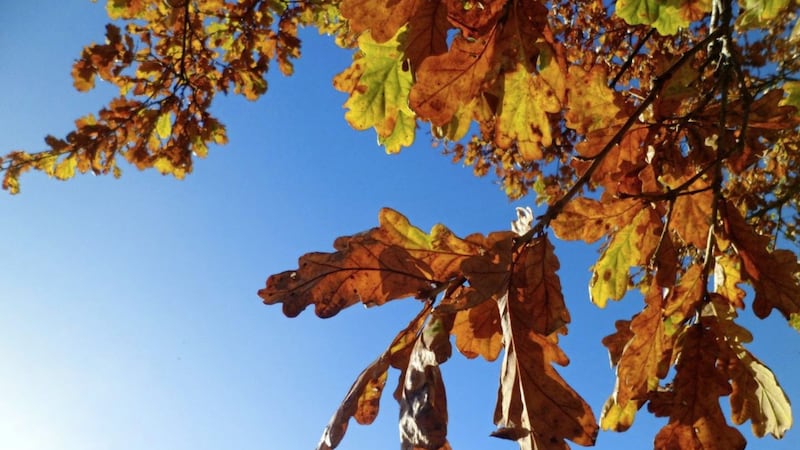Christ Church cathedral in Dublin isn’t the sort of place you’d normally hear a public profanity; especially not an African Union official proclaiming that we’re now “in deep sh*t” (environmentally speaking).
Then again, its regular gatherings don’t involve too many complementary speeches from Native American Indians, a Buddhist teacher, a Catholic cardinal and bishops, and representatives of most creeds and colours in Ireland, alongside eminent climate scientists and laity activists.
Yet that’s what happened the night before Pope Francis arrived last month. And it was a hugely impressive interfaith, international gathering, at every level – personal, pastoral and political.
The evening focussed on the dual demand for climate justice and social justice.
And the key message for tackling environmental climate change was a plea for each person to adopt a form of individual climate change – in our attitudes and actions, towards others and the planet.
Both are fundamentally interlinked: environmental climate justice, and interpersonal climate change. Global survival needs the best of both science and morality.
From a perspective in which all things are interlinked, climate change can actually be a good thing - but only if it’s about the global warming of values of love, dignity and respect for each other. These values are the basis of every meaningful relationship, and they manifest the meaning of true family, with integrity.
Too often – like much of modern culture – these values are seen as expendable and exploitable; not gifted to grow. Falsehoods and fakery can repeatedly ambush hope and hijack happiness, strangling inner potentials and outward opportunities.
One of the seminal moments at Christ Church came from Bishop William Crean, chairperson of Trócaire. Bishop Crean received warm applause when he announced that the Catholic bishops are divesting from all fossil fuels. As Trócaire’s agenda testifies over 45 years, economic ethics is key to social justice.
But institutional mobilisation depends on individual action. This was demonstrated by 12-year old Flossie Donnelly, who explained how she has gathered together teams of volunteers in south Dublin to clean up beaches and help the oceans.
Likewise, Christ Church heard about the SMA’s Laudato Tree project, partnered with the Irish Tree Council, which harnesses the interrelationship between science, religion, faith, economics and even small ‘p’ politics.
The Laudato Tree project puts values into action. It invites a practical understanding of our collective social, moral, environmental and ethical connections, inspired by key aspects of Pope Francis’s Laudato Sí encyclical.
The project is a vehicle for Irish action and African empowerment. It enjoys support from President Higgins in his call to arms for the African Union’s Great Green Wall which seeks to halt the onslaught of the Sahara desert as it steals land in Africa.
The Laudato Tree project encourages Irish people to help fund tree-planting in Ireland. For every tree in Ireland, five will be planted along the Great Green Wall – an 8,000 km corridor of new vegetation across the breadth of the African continent.
A phalanx of trees with a high capacity to thrive in arid conditions, like acacia, will help African people begin to literally recover ground. Water is returning. Shoots are regrowing. Communities are renewing. Displacement is decreasing.
With £1.1 million financial support from the Irish government, and supported by the United Nations, the Great Green Wall gives an opportunity for individual actions of Irish citizens to collectively contribute to global climate justice, via local projects like Laudato Tree.
With the calls from Christ Church still echoing, there was an important symbolism, beyond mere tradition, in Pope Francis planting a tree at Áras an Uachtaráin.
The Laudato Tree project also sits alongside another SMA initiative, the Family Tree project. Using the tree as a metaphor, this project explores our collective social, moral and ethical connections and values – the roots of family and love, the rings of growth, the trunk of personal stability, and the branches of friendship in life.
This broader theme of seeing our everyday lives through the environmental cycle of trees and forests gives us a critical way to begin thinking about today and tomorrow.
Environmental climate justice, and interpersonal climate change, are not just tremendous forces for good, uniting people despite differences of politics, religion, class or race. They are now total necessities for human survival.
Our relationships with the earth, and with each other, demand a much deeper perspective. They can no longer be disposable.
Each day, we need to nurture the very smallest seeds of renewal, cultivating the unseen harvests of authentic love for this planet and love for each other.
The old saying goes: from small acorns grow mighty oaks. It’s time that we started seeing the wood for the trees – globally and individually.








